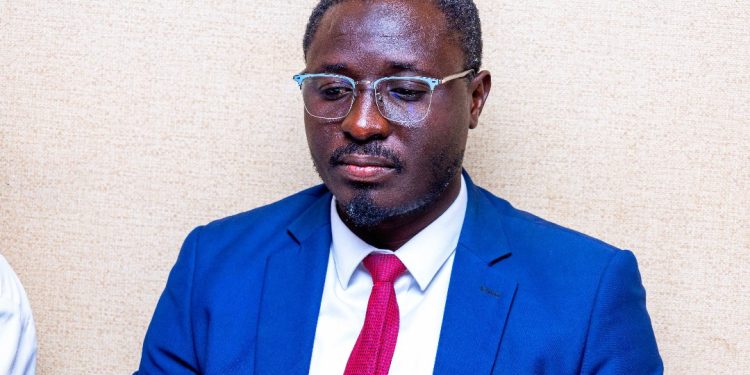Revamping Ghana’s Capital Market through Islamic Finance: The New Frontier for Capital Market Growth
In recent years, Ghana has made commendable strides in building a resilient financial system. Since its inception in 1990, the Ghana Stock Exchange (GSE) has served as a key engine for capital mobilization, investment promotion, and economic growth. As Ghana positions itself to become a leading financial hub in West Africa, one unexploited avenue with vast potential is Islamic finance. Aligning the GSE’s operations and financial instruments with the principles of Islamic finance presents not only a financial innovation but also a strategic opportunity to accelerate market development.
Despite progress, Ghana’s capital market remains relatively shallow and underutilized, limiting long-term investment potential. Islamic finance, with its ethical and asset-backed principles, offers a timely and powerful complement. The global Islamic financial services industry continues to grow steadily, with total assets exceeding $3.88 trillion. Projections for the Islamic capital market point to robust expansion. Allied Market Research forecasts growth from $2.5 trillion in 2023 to $7.7 trillion by 2033, indicating a compound annual growth rate (CAGR) of 12%. Other research firms such as Straits Research and Spherical Insights provide more conservative forecasts at 9.15% and 5.22% respectively, while Market.us projects a bullish 18.4% CAGR, anticipating a market value of $12.5 trillion by 2033.
There is broad consensus among analysts that the Islamic capital market is on an upward trajectory that could surpass many conventional financial segments. Africa stands to benefit, with the Islamic finance market on the continent projected to generate $500 million to $600 million in revenue over the next five years. The increasing demand for sukuk (Islamic bonds) and sustainability-related finance initiatives is expected to contribute an additional $80 million to $100 million, driven by the global shift toward environmental and social responsibility.
Africa’s $100 billion annual infrastructure funding gap presents a substantial opportunity for Islamic finance to emerge as a key financing solution. Countries such as Nigeria, Senegal, Ivory Coast, and South Africa are already utilizing sovereign sukuk to fund major infrastructure projects, benefiting financial institutions through underwriting, secondary market transactions, and currency hedging.
Globally, Islamic finance has gained ground in countries like Malaysia, Saudi Arabia, the UAE, and the United Kingdom, all of which have developed robust Islamic capital markets. Nigeria, Ghana’s West African peer, has successfully issued multiple rounds of sovereign sukuk, raising significant funds to address infrastructure needs. Ghana, with the right strategy, is well positioned to follow suit and leverage Islamic capital market tools to drive economic transformation.
Islamic finance emphasizes transparency, fairness, and shared prosperity. It provides an ethical finance model that aligns closely with global sustainability goals. As Ghana seeks new pathways to build a resilient and inclusive economy, integrating Islamic capital market instruments represents a forward-thinking solution.
Ghana’s existing legal framework offers a strong foundation to support this transition. The Securities Industry Act, 2016 (Act 929), particularly Section 209, empowers the Securities and Exchange Commission (SEC) to issue rules and guidelines for the conduct of business in the securities industry, including those necessary for ethical practices. This gives the SEC the regulatory discretion to develop frameworks for non-interest financial products, enabling the introduction of standards for Shariah-compliance, certification bodies, disclosure norms, and investor protection mechanisms tailored to Islamic finance.
A proactive approach by the SEC, in collaboration with key stakeholders such as the Islamic Finance Research Institute Ghana (IFRIG), the Islamic Finance Professionals Institute (IFPI), the GSE, and other partners, is now needed. Together, they must develop tailored regulations, design pilot products, and engage in extensive market education.
Incorporating Islamic financial instruments into Ghana’s capital market can unlock new sources of capital through instruments like sukuk, Islamic mutual funds, Shariah-compliant equities and indexes, and Islamic Real Estate Investment Trusts (REITs). Sukuk, which represent ownership in tangible assets or projects and avoid interest-based returns, could finance critical sectors such as energy, transport, ICT, water, and institutional infrastructure. Islamic mutual funds can attract ethically conscious investors and stimulate retail participation, while Islamic REITs can support urban development and affordable housing projects.
For successful integration, Ghana must strengthen its regulatory, legal, and institutional infrastructure. Regulatory reforms, such as formally recognizing Islamic instruments within the Securities Industry Act and issuing specific guidelines on sukuk and Islamic funds, are essential.
Ghana can also learn from international best practices. Malaysia, the global leader in Islamic capital markets, accounts for over 60% of global sukuk issuance and has a sophisticated regulatory regime. Luxembourg, despite its size, is a hub for Shariah-compliant investment funds due to flexible regulations and strategic partnerships. Nigeria, with its secular framework, has demonstrated the viability of Islamic finance by creating a dedicated regulatory system and issuing both sovereign and subnational sukuk.
The UK is another notable example, having amended tax laws to accommodate Islamic products and becoming the first Western country to issue a sovereign sukuk in 2014. It remains a global player in Islamic finance with initiatives like the Nest Shariah Fund, which attracted £180 million in 2024. South Africa raised $500 million through a sovereign sukuk in 2014, using the funds for infrastructure development, while Hong Kong amended its tax and legal systems to support Islamic instruments and issue sukuk internationally.
Revamping Ghana’s capital market through Islamic finance is not only possible, it is necessary. With coordinated efforts involving regulators, government agencies, financial institutions, and religious leaders, Ghana can unlock a new source of ethical capital aligned with its developmental priorities.
As the world pivots toward sustainable and inclusive financial systems, Islamic finance provides Ghana with the tools to create a deeper, broader, and more equitable capital market. The government must take the lead by issuing sovereign sukuk and encouraging public and private sector entities to explore and adopt Islamic finance solutions.
This is Ghana’s moment to redefine its capital market landscape, and Islamic finance is the frontier.










This is very encouraging. We pray this Islamic banking will be sustained and be the source of a learning where other countries like Zambia can also learn from.
In Zambia we have been looking forward to establish one, learn from it and later establish as many as possible in other provinces of Zambia.
This is a fantastic write-up. I love it.